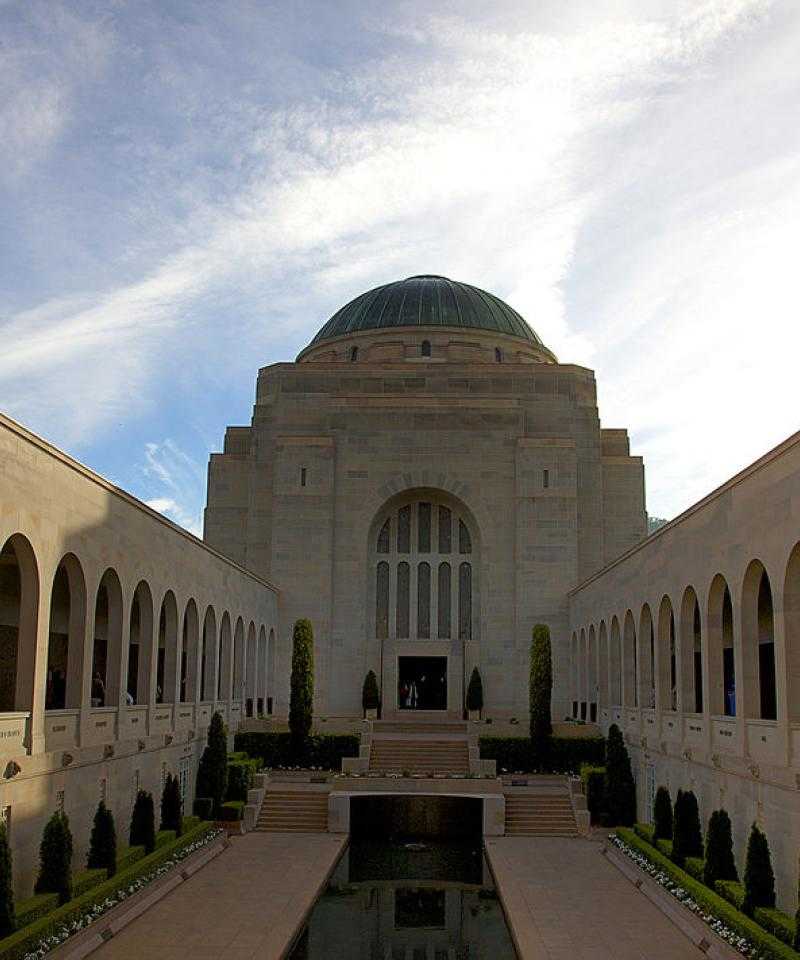The Australian War Memorial and weapons manufacturers

The peace of the world for future generations is anathema to the interests of those who profit from warfare. As we commemorate again the “war to end all wars”, and every war since, one can only wonder what the diggers would have thought, as we allow the industry that profits from the cruelty of wars to bask in the reflected glory of those who suffer it.
The Australian War Memorial (AWM) is one of our pre-eminent national institutions. It rightly holds a special place in commemorations of our war dead, not only as the nation pauses on Anzac Day, but right throughout the year. In the memorial’s own words, “Its mission is to assist Australians to remember, interpret and understand the Australian experience of war and its enduring impact on Australian society”.
To pursue its mission, the AWM receives significant Commonwealth Government funding. However an additional source of funds is corporate sponsorships, which are used to enable exhibitions, educational and other public programs. Among the corporate sponsors are weapons manufacturers, including some of the biggest names globally or their Australian subsidiaries. BAE Systems Australia, Boeing Australia, Lockheed Martin, ADI Ltd, Thales Australia, Raytheon Australia, Australian Submarine Corporation Pty Ltd, and others are all there.
One would expect that sponsoring corporations would themselves share, or at least not be opposed to, the mission of the AWM, “.….to remember , interpret and understand the Australian experience of war….”. However this creates a conflict. For those Australians who have either direct or indirect experience of war, that experience is most often an intensely negative one, characterised by suffering, death, injuries, bereavement, deprivation and fear, and often lifelong psychological trauma; there is no glory, but simply tragedy. For weapons manufacturers, on the other hand, the experience is a very positive one, characterised by record sales and profits. For them, war is good for business, and its commemoration should focus on the glory of sacrifice and patriotism.
For corporate donors to the AWM, the benefits may not be limited to a favourable mention in AWM publications. BAE Systems has a theatre named in its honour. The hiring of BAE Systems Theatre can be combined with “a VIP tour of the Memorial’s galleries for a truly special occasion”. So much for any egalitarian spirit.
BAE Systems has also been a key weapons supplier to the Saudi Arabian government; its Typhoon combat aircraft are playing a central role in that government’s attacks in Yemen which are causing human suffering on a huge scale and have been condemned by human rights organisations. Saudi Arabia is also using F-16 fighter jets from Lockheed Martin; Boeing, Raytheon and other Western arms suppliers in search of foreign business are also pouring their wares into the region.
Britain’s weapons sales to Saudi Arabia are currently being challenged in a High Court case, and the Ministry of Defence is investigating 252 alleged breaches of international law by Saudi Arabia in Yemen. Andrew Feinstein, in his book “The Shadow World: Inside the Global Arms Trade” (2011, Penguin Books, page 173) refers to BAE’s “pattern of doing business”: “BAE’S bribing of officials and politicians and their efforts to cover up the corruption undermined democracy and the rule of law and inhibited socio-economic development in the purchasing countries”. In 2004 the Serious Fraud Office in the UK began investigations into BAE dealings, which the company campaigned hard to shut down. The irony of this company having pride of place among those who fought and died believing in democracy is chilling.
Northrop-Grumman, from whom Australia is buying Triton drones, are also keen to be associated with our war dead. Their name appears on a large advertising panel for the AWM at Canberra Airport, with the caption “for we are young and free”. In December 2014, the AWM was the venue to launch Northrop-Grumman Australia, in very celebratory style to boost the corporate image, with Defence Minister Senator David Johnstone and AWM Director Dr Brendan Nelson in attendance.
To understand our country’s experience of war and its lasting impact, the events and factors contributing to our seemingly endless participation in wars must be a central part of that understanding. To omit them would be like trying to understand, say, lung cancer without examining the role of tobacco smoking and those who promote it – grossly incomplete, devoid of context and designed to prevent any lessons being drawn.
The Australian War Memorial was opened on Armistice Day in 1941 by the Governor-General, Lord Gowrie. In his speech, he said that the Memorial would be “…not only a record of the splendid achievements of the men that fought and fell in [the Great War]….”, but also “a reminder to future generations of the barbarity, of the utter futility of modern war.”
Lord Gowrie asked: “What can we give to those who gave us all? And I know that our answer will be that we are determined that these men shall not have died in vain, and that we are prepared for any sacrifice to put an end, once and for all, to this diabolical menace to mankind and ensure the peace of the world for future generations.”
The peace of the world for future generations is anathema to the interests of those who profit from warfare. As we commemorate again the “war to end all wars”, and every war since, one can only wonder what the diggers would have thought, as we allow the industry that profits from the cruelty of wars to bask in the reflected glory of those who suffer it.
Add new comment